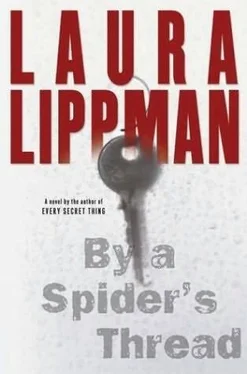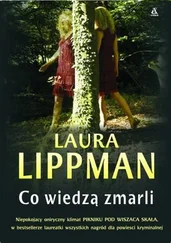Even as Zeke processed the inconvenient fact of the children's presence-in Terre Haute in particular, on the planet in general-he understood why it never would have occurred to Natalie to leave them behind when she bolted. What was hers was hers; Natalie was almost crazed on this point. It had killed her, having to leave so many of her possessions back in Mark Rubin's house. But the children were hers, and hers alone, according to Natalie's bizarre logic. Motherhood had gotten under Natalie's skin in a way Zeke never could have predicted. She still put him first, above all others, but she didn't see why she couldn't do that while tending to the children she had conceived with another man. If only Zeke's own mother had been committed to such a paradoxical idea. But Zeke's mom had always put her happiness above his.
He had tried to convince Natalie to go home, to wait just a month or two more, although her disappearance and reappearance would make Mark inconveniently suspicious. Failing that, he urged her to put the children on a bus before they had seen too much and knew too much, although he didn't phrase it quite that way. "Don't you see he's going to do a full-court press to find you? A wife runs away, a man might come to accept it. But when she takes his kids, it's like throwing down a gauntlet. He has to hunt for you now."
Natalie had just stared at Zeke blankly, not getting it. Her English was flawless, unaccented, yet riddled with holes of willful incomprehension. She knew twenty-seven different ways to describe red lipstick, but she wouldn't know a gauntlet, whether thrown down or run down.
"With or without the children, he was going to look for me," she said. "He loves me. You told me to make sure of it, and I did. He adores me."
"Yeah, but…" Useless to explain. Although generally pliable, Natalie could be thick when it suited her. By leaving early and taking the kids, she had screwed up everything, forced him to improvise. Zeke preferred not to improvise. Then again, Natalie didn't know the particulars of his plan-he had needed her to be plausibly bewildered when the payoff came-so she could almost be excused for throwing a goddamn monkey wrench into the works. Natalie didn't have the benefit of ten years of planning, thinking, dreaming. She had gone about her reasonable facsimile of an Orthodox mama's life, driving her kids to school and Gymboree, shopping at the kosher markets, marking time until the day that Zeke would summon her and their real life would begin.
And then, with only a few weeks to go, she had bolted, no longer able to wait. He was still trying to process the mere fact of her presence when she led him into that motel room and showed him the three solemn-faced children waiting there, three little Rubins, three goddamn contingencies to be dealt with.
Short term, Zeke had figured out how they could use the kids to their advantage, make them pay their way. So they drove from town to town, masquerading as a family, telling a lie, getting a check, using the check to case the banks, which allowed them to get even more money if the security proved to be as nonexistent as Zeke had heard. Amazing how many places skimped on things like cameras and guards, content to let Plexiglas carry the day. But then, that's what he had learned, back in Terre Haute. It may be a federal charge, but it didn't have to be that risky, not if you were careful. The feds had bigger things on their minds these days. Too bad it was such a small score, but what could a man do? He'd get his big payoff soon enough, and he'd be hundreds of miles away when it all came down.
Because here was something else that Zeke had figured out in Terre Haute: The best schemes weren't in the minds of other inmates out on the yard but in the prison library, and in the novels at that. The nonfiction books were written from the point of view of the cops or the losers, but the novelists were a larcenous lot at heart, devising criminal enterprises that they themselves then foiled. Elmore Leonard, James M. Cain, Donald Westlake-Zeke might have been the first person to read these men for their plots, making careful notes. In Zeke's view there was no reason that Walter Huff and Phyllis Nirdlinger shouldn't live happily ever after on the largesse provided by Mr. Nirdlinger. The trick was not to get greedy and go for the double-indemnity clause. And to roll with the punches when necessary. That's what Zeke had done when Natalie showed up with those damn kids, and so far it was working.
Besides, Zeke's scheme might have been born of necessity, but it had a certain serendipity. The lies that Natalie told would become the truth, as lies often did. There was even a pleasing symmetry. His father's name had been smeared, and he had taken his life out of despair over the unfair accusations against him.
Now Mark Rubin's life would be destroyed-figuratively, with the loss of his wife and children, and then literally, by one of the poor souls he had deigned to help. The self-righteous prig. Zeke almost wished Mark could be alive when his widow returned to town to bury his body and claim the life insurance, not to mention his sizable estate. Those who consoled her would be treated to her whispered confidences: Mark Rubin had beat her, that's why she had run away. Look, she had the welfare handouts to prove it, emergency checks given by trusting social workers, appalled by the old-fashioned patriarchy of Orthodox life. Another bit of luck from Terre Haute-Natalie couldn't have pulled this act in, say, Chicago, where Zeke had planned to settle short-term. But in the rural hamlets of Indiana, Illinois, and Ohio, sympathetic souls couldn't wait to raid their emergency funds for the abused Orthodox wife on the run. So yeah, he had made it all work for him thus far, rolled with the punches, handled every unplanned contingency.
Except, of course, for the children. But he'd figure out what to do with them, too, and sooner rather than later. Zeke wasn't going to raise Mark Rubin's bastards. As he fell back to sleep, he found himself wondering if Mark was the kind of man who insured his children. Possibly. Probably. He was that tight-assed-and that clueless. Mark Rubin thought he could anticipate every contingency, but he would never see what Zeke had planned for him.
By Monday morning Tess was on the road, her breasts safely stowed beneath her usual turtleneck and a perfectly acceptable cocktail dress parked in her closet-black, halter-necked, and sleeveless, showcasing the shoulders and deltoids instead of the pectorals. Meanwhile, Uncle Donald had spent the weekend pulling strings, old and frayed as they were. Tess was now on the visiting list for Boris Petrovich, a process that normally required weeks of back-and-forth with the Department of Corrections.
"Who else is on the list?" she asked her uncle's DOC contact, curious to see if Natalie had gone behind Mark Rubin's back and continued to visit her father all these years.
"His lawyer, his wife, and someone named Lana Wishnia."
"Really?"
"Yes, but she hasn't been to see him since he was moved to the Eastern Shore six months ago. Probably too far for her to go."
"I guess inmates learn who really cares about them when they end up on the Eastern Shore."
Petrovich had been transferred to Eastern Correctional Institution in Somerset County. It was a long trip, made longer by the lack of an interstate past Annapolis. And because it was an autumn weekday, as opposed to a summer weekend, Tess didn't even have the consolation of grabbing a barbecue sandwich or buying fresh produce from a roadside stand. Not that she had much appetite this morning. Her stomach had clutched while crossing the Chesapeake, but she reminded herself that neither the bridge, the bay, nor the islands it contained were the source of her troubles last spring, just the routes she had taken to find them.
Читать дальше












